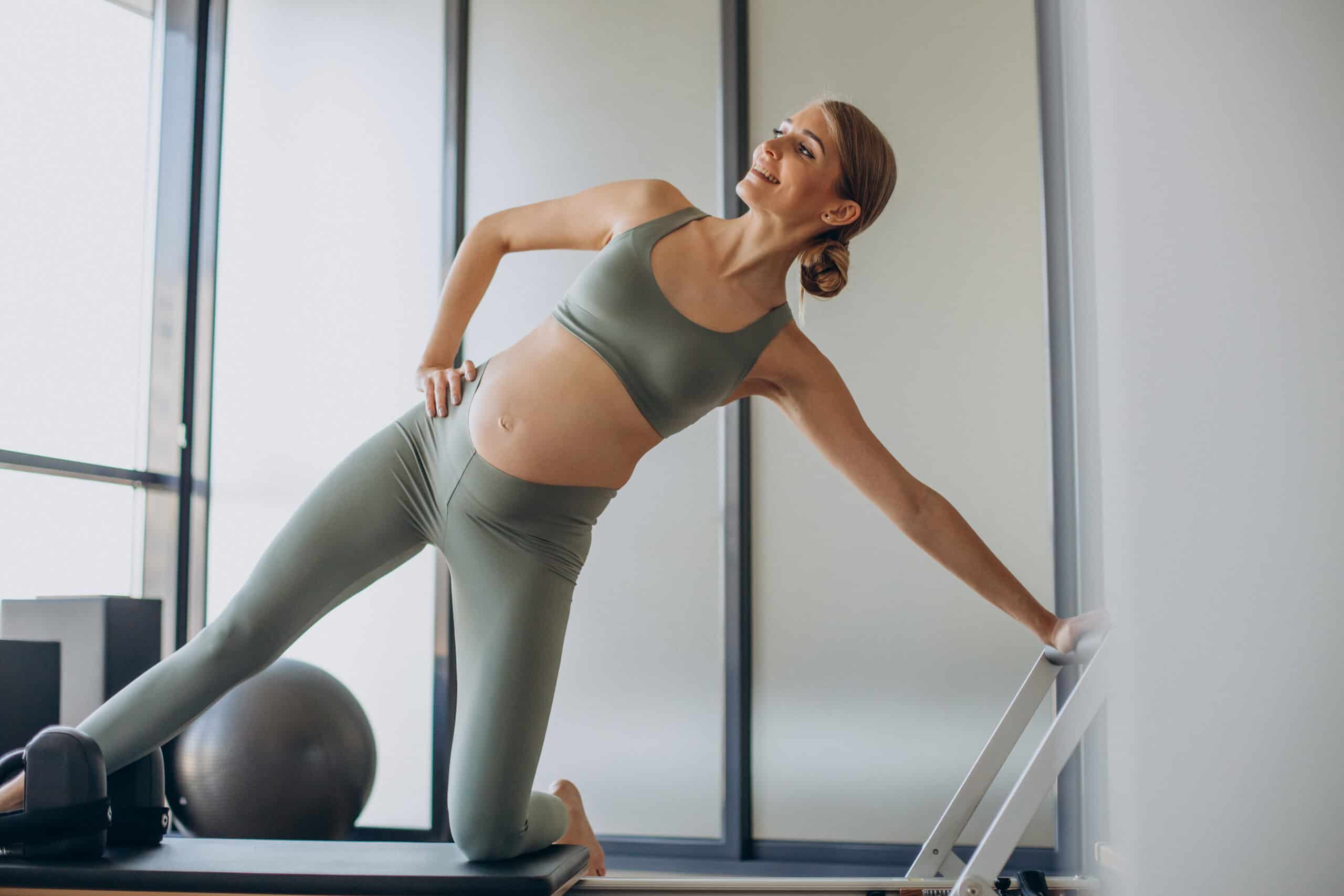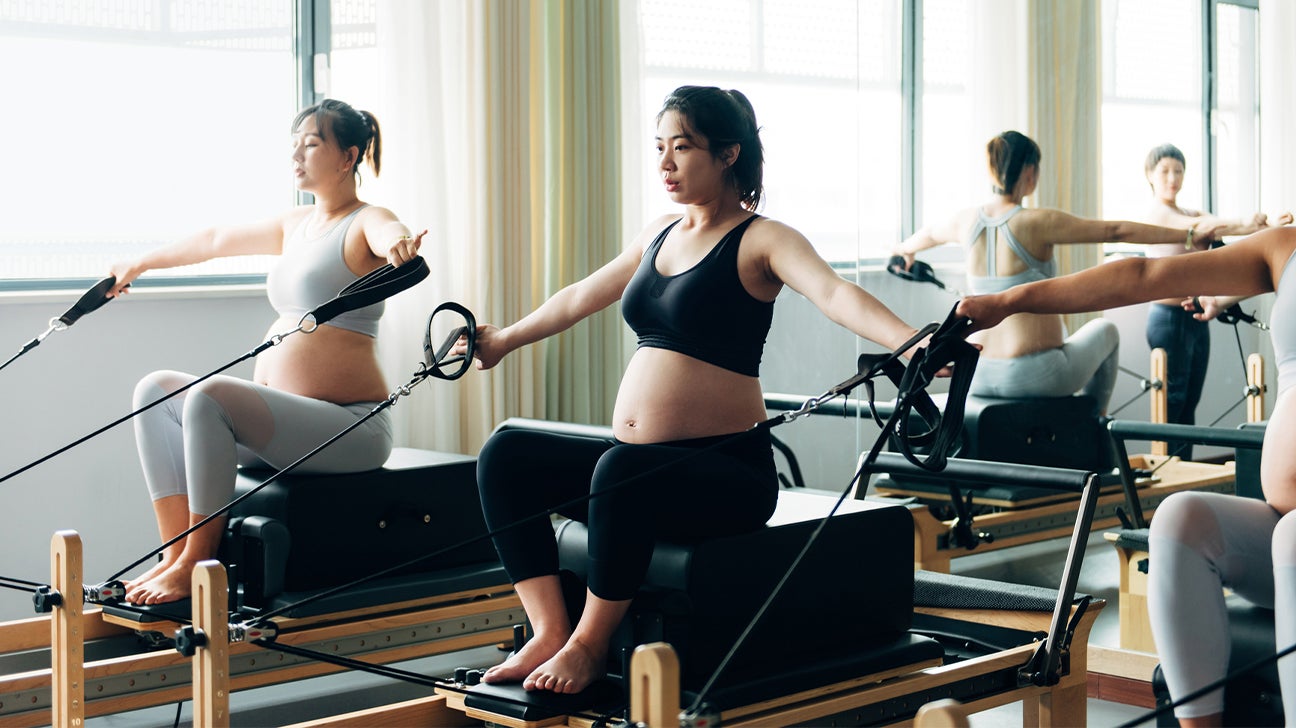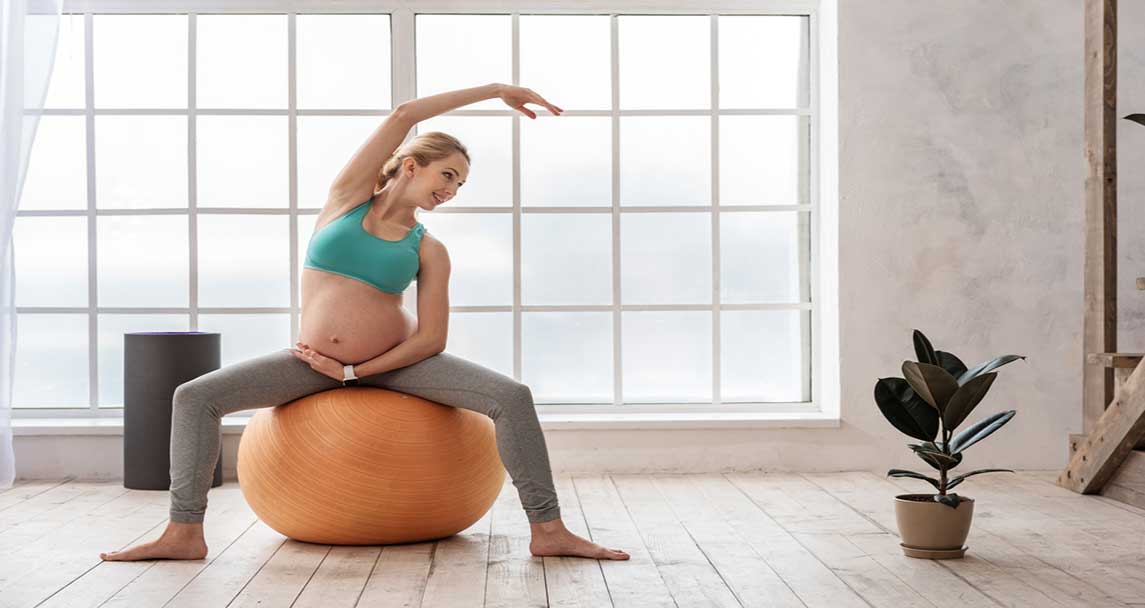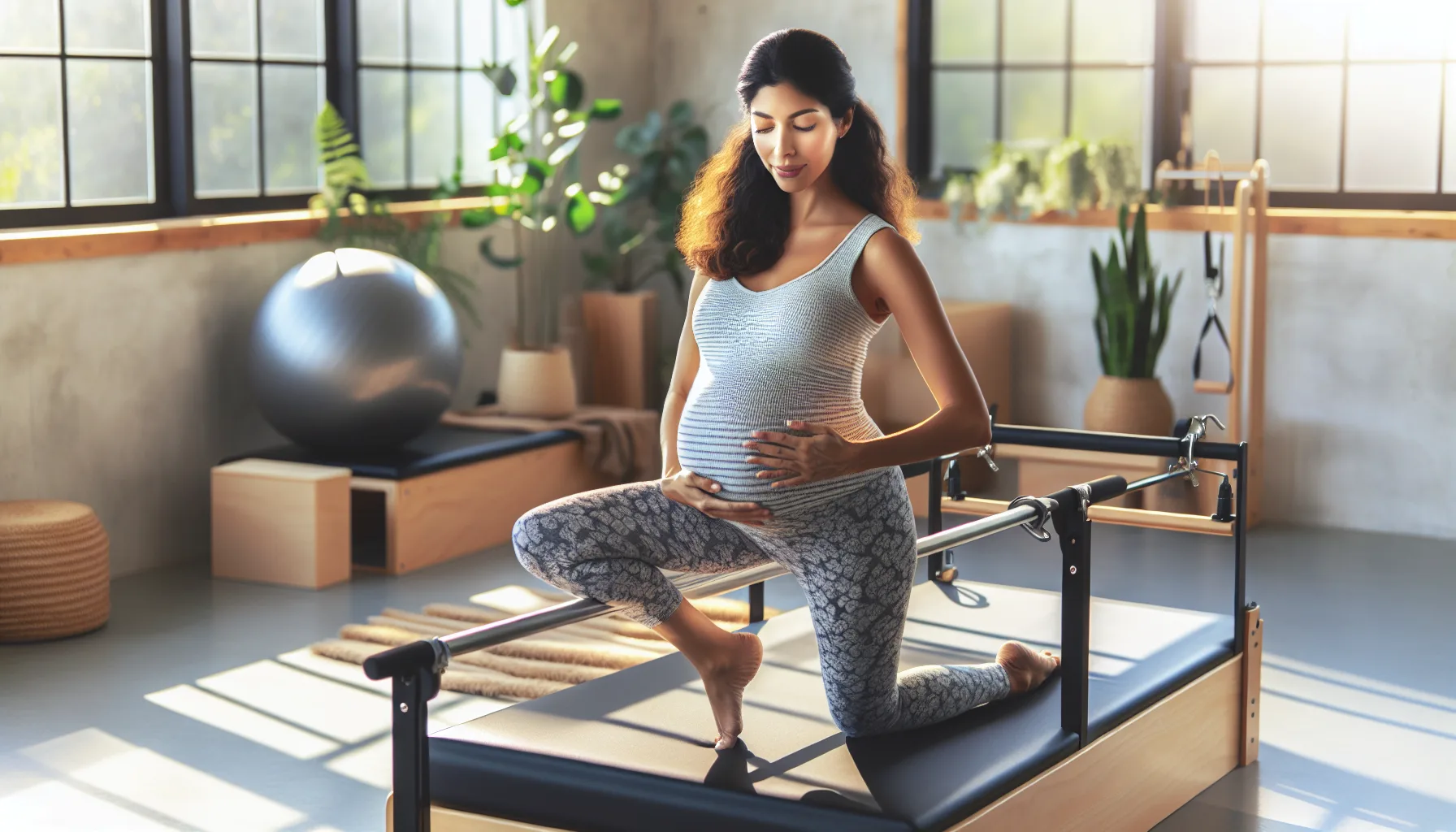Can You Do Reformer Pilates While Pregnant?

Can You Do Reformer Pilates While Pregnant?
Pregnancy is a time of incredible transformation, both physically and emotionally.
As your body changes to accommodate your growing baby, it’s important to find ways to stay active and healthy.
Pilates, with its focus on core strength, flexibility, and mindful movement, can be a great option for expectant mothers.
But what about reformer Pilates? With its specialized equipment and dynamic exercises, is it safe and beneficial during pregnancy?
The answer is generally yes, but with modifications and careful consideration. Reformer Pilates can be a fantastic way to maintain fitness, prepare for childbirth, and recover postpartum.
However, it’s crucial to consult your doctor and work with a qualified instructor who understands the unique needs and precautions of pregnancy.
Let’s dive deeper into the benefits, considerations, and frequently asked questions surrounding reformer Pilates during pregnancy.
What are the benefits of reformer Pilates while pregnant?

Reformer Pilates offers a range of benefits for pregnant women, including:
Core strengthening
The reformer helps strengthen your deep core muscles, which are essential for supporting your growing belly and maintaining good posture. A strong core can also help alleviate back pain, a common complaint during pregnancy.
Pelvic floor strengthening
The pelvic floor muscles support the bladder, bowel, and uterus. Reformer Pilates exercises can help strengthen these muscles, which can aid in preventing incontinence and prepare your body for childbirth.
Improved posture
As your pregnancy progresses, your center of gravity shifts, which can lead to postural imbalances. Reformer Pilates helps improve posture and alignment, reducing strain on your back and joints.
Increased flexibility
The reformer allows for a wide range of motion, helping to improve flexibility and mobility in the hips, spine, and shoulders. This can be particularly beneficial during labor and delivery.
Stress relief
Pilates emphasizes mindful movement and deep breathing, which can help reduce stress and anxiety, promoting relaxation and well-being.
Improved circulation
The exercises on the reformer can help improve circulation, reducing swelling and promoting overall cardiovascular health.
Is Pilates or yoga better during pregnancy?

Both Pilates and yoga can be beneficial during pregnancy, but they offer different advantages.
Pilates
Focuses on core strength, stability, and precise movements. It can be particularly helpful for strengthening the pelvic floor, improving posture, and preventing back pain.
Yoga
Emphasizes flexibility, balance, and relaxation. It can help improve circulation, reduce stress, and prepare the body for labor through poses and breathing techniques.
Ultimately, the best choice depends on your individual preferences and needs. Some women may find that a combination of Pilates and yoga is the ideal solution.
What are the risks of reformer Pilates while pregnant?

While reformer Pilates is generally safe during pregnancy, there are some risks to consider:
Overexertion:
It’s important to listen to your body and avoid overexertion. Pregnancy hormones can make your joints more lax, increasing the risk of injury.
Certain exercises:
Some exercises, such as those that involve lying flat on your back after the first trimester, should be avoided. Your instructor can modify these exercises to ensure your safety.
Diastasis recti
This is a separation of the abdominal muscles that can occur during pregnancy. While reformer Pilates can help strengthen the core, it’s important to avoid exercises that put excessive strain on the abdominal muscles.
It’s crucial to discuss any concerns with your doctor and inform your instructor about your pregnancy.
They can help you determine if reformer Pilates is appropriate for you and modify exercises as needed.
Can I start reformer Pilates while pregnant?

If you were practicing reformer Pilates before pregnancy, you can likely continue with modifications.
However, starting a new reformer Pilates routine during pregnancy is generally not recommended, especially if you’re new to exercise.
It’s best to start with a prenatal Pilates class or other low-impact exercises and gradually progress as your body adapts. Always consult your doctor before starting any new exercise program during pregnancy.
When should I stop doing reformer Pilates while pregnant?
You can typically continue reformer Pilates throughout your pregnancy as long as you feel comfortable and have your doctor’s approval.
However, you may need to modify or reduce the intensity of your workouts as your pregnancy progresses.
Listen to your body and stop if you experience any pain or discomfort. It’s always best to err on the side of caution and prioritize your and your baby’s health.
What exercises should be avoided in Pilates during pregnancy?
Certain Pilates exercises should be avoided or modified during pregnancy, including:
- Exercises that involve lying flat on your back after the first trimester: This can restrict blood flow to the uterus.
- Exercises that put excessive strain on the abdominal muscles: This can worsen diastasis recti.
- Deep twists and backbends: These can strain the back and abdominal muscles.
- High-impact exercises: These can put stress on your joints.
Your instructor can provide modifications and alternative exercises that are safe and effective during pregnancy.
Can you use a Pilates reformer in the third trimester?
Yes, you can often use a Pilates reformer in the third trimester with modifications.
However, it’s crucial to listen to your body and avoid any exercises that cause discomfort.
Your instructor can help you adjust your workout to accommodate your changing body and energy levels.
They can also provide exercises that can help prepare your body for labor and delivery.
Is reformer Pilates good for postpartum?

Reformer Pilates can be an excellent choice for postpartum recovery. It can help:
- Strengthen your core and pelvic floor muscles: These muscles are often weakened during pregnancy and childbirth.
- Improve posture and alignment: Carrying a baby can put strain on your back and shoulders.
- Reduce back pain and diastasis recti: Reformer Pilates can help address these common postpartum issues.
- Increase energy levels and improve mood: Exercise can help boost your energy and mood after childbirth.
However, it’s important to wait until you have your doctor’s clearance before starting any postpartum exercise program.
Reformer Pilates classes in Brentwood, CA

If you’re in Brentwood, CA, and looking for reformer Pilates classes, Delta Valley Health Club is a great option.
They offer a variety of Pilates classes, including reformer classes, taught by experienced instructors.
Be sure to inform them that you’re pregnant so they can tailor the exercises to your needs.
Remember: Always consult your doctor before starting any new exercise program during pregnancy or postpartum.
Work with a qualified instructor who understands the unique needs and precautions of pregnancy. Listen to your body and modify or stop exercises as needed.
Reformer Pilates can be a wonderful way to stay active, healthy, and connected to your body during pregnancy and beyond.
With the right guidance and precautions, it can support your journey to motherhood and help you feel your best.

